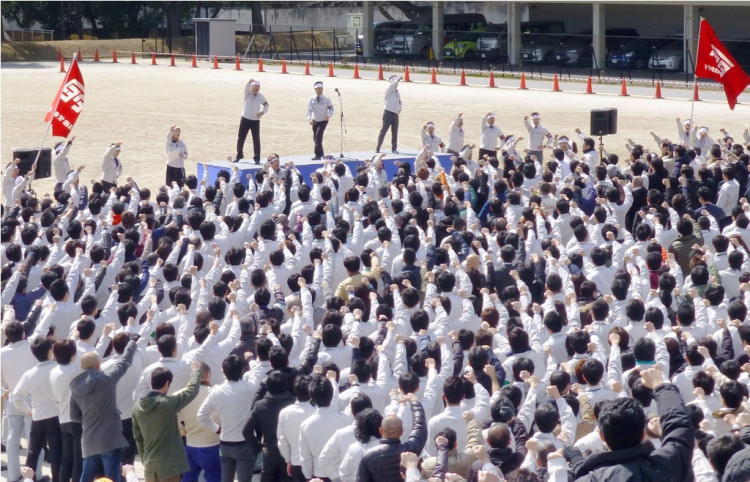Some of Japan's biggest companies offered a smaller amount in wage increases on Wednesday's salary talks. Analysts attributed the downturn to economic troubles the country is faced with.
According to Japan Today, even bigger companies are getting pressured by the economic slowdown and are wary of offering huge wage hikes. A higher salary increase translates to higher fixed costs that companies will have to battle with as the local economy slumps further.
Called unto talks, the deliberations were attended by business unions and management entities in Japan. The results have set the bar for wage increases across the country. Some experts are worried that the downtrend may have an impact on inflation and consumer spending.
"I worry the momentum towards wage hikes may weaken as underlying inflation remains weak and there is a strong sense of uncertainty," Hisashi Yamada, senior economist at Japan Research Institute (JRI), said.
Yamada added that many businesses in the country are displaying high levels of uncertainty. Most are wary of global trade tensions and instability in European politics due to the troubled British exit. Furthermore, Japan will soon roll out a national sales tax that could further ignite pessimism in the business sector.
One of the companies that offered a lower salary increase amount is Bellwether Toyota Motor Corp. While it is Japan's biggest carmaker, the firm only offered an average raise of 10,700 yen. This amount is 1,000 less from 2018, local outlets reported.
To help boost positivity in the corporate sector, Prime Minister Shinzo Abe will implement work-related reforms for workers and business owners. The reform seeks to ease up on the country's long working hours that employees have complained of.
Aside from the corporate world, Japan's machinery sector has also started experiencing the brunt of a wobbly economy. Machinery orders dropped in January at the fastest pace yet in a period of four months.
According to Reuters, demand for telecommunications and car equipment dropped by 5.4 percent in January. Economists noted that the Japanese corporate sector will most likely get a beating from decreased capital expenditures that stem from trade disputes and policies.
Senior Market Economist at Mitsubishi UFJ Morgan Stanley Securities, Shuji Tonouchi said, "It's fair to say the outlook for capital expenditure in Japan is not bright." He said pessimism among Japanese companies could threaten the economy's capital expenditure plans for 2019.
In Japan, April is the month for commencing a new fiscal year. Companies are expected to come up with investment and capital expenditure plans before then. However, the corporate sector's poor performance in January is affecting forecasts and planning among businesses.





